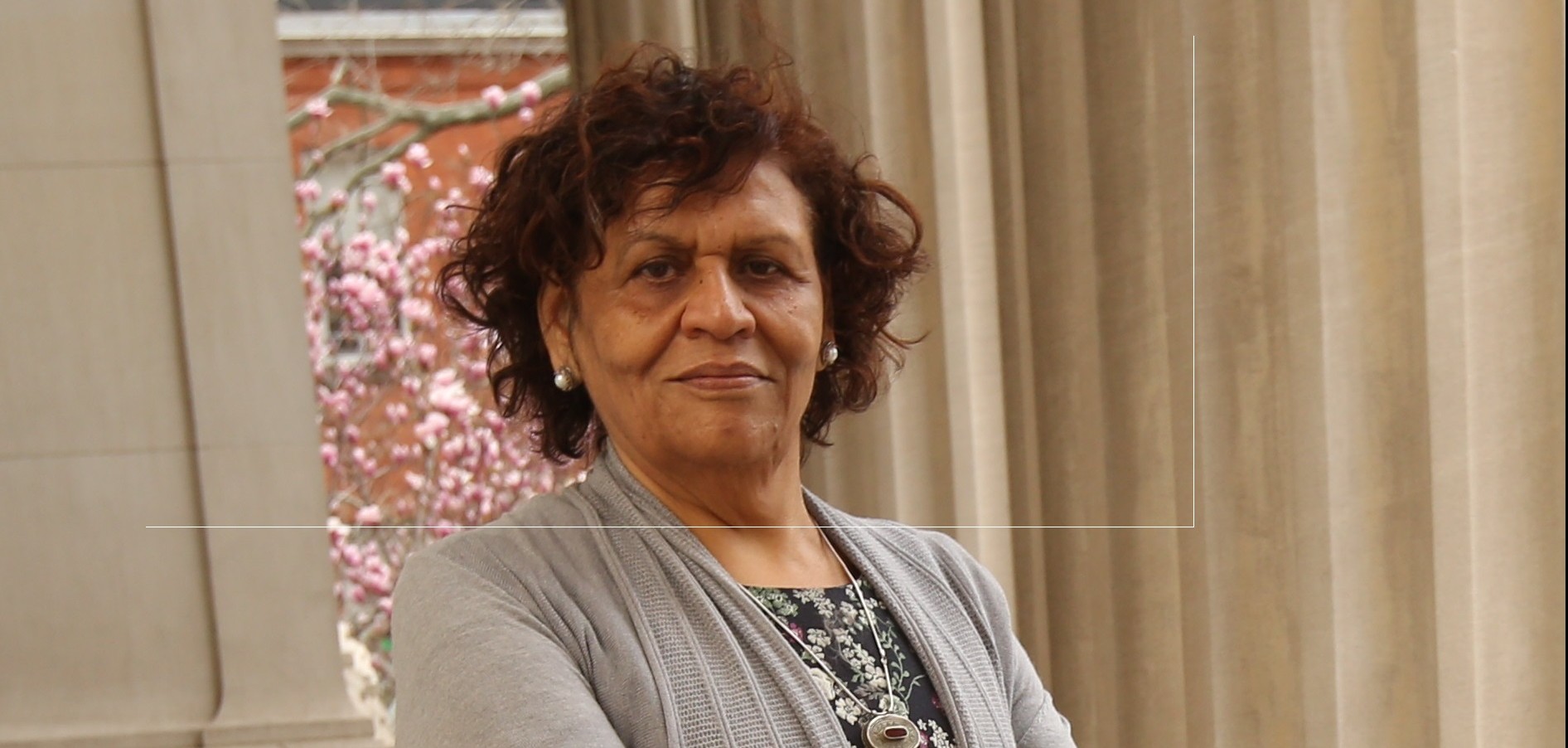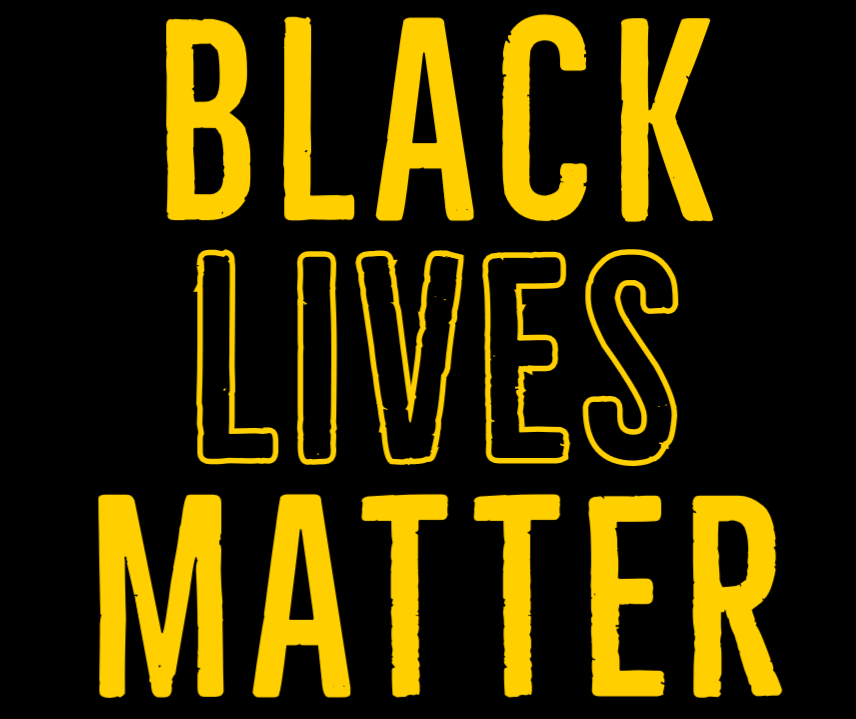Dr. El-Bassel and SIG Leadership on Anti-Black Racism

Message from SIG Director Dr. Nabila El-Bassel
We wanted to make sure you all saw Dean Melissa Begg's message to sign and take action against anti-black racism that has resulted in recent brutal police murders of George Floyd, Ahmaud Arbery, Sean Reed and Breonna Taylor among so many others. These are heartbreaking times.
We recognize how challenging it is to work amidst these very painful events and particularly traumatizing for individuals who experience racism and live with the threats of violence all the time. Maintaining physical, mental and emotional health during this very challenging time is of utmost importance. We found this article helpful in thinking through the impact of these recent events on work and "productivity."
Please also visit the resources available on the CSSW Action Lab, which "builds on our rapidly developed COVID-19 ACTION initiative, designed to produce psychoeducation and social policy training for thousands of local and national community members, as well as a volunteer matching service for local community, non-profit, and social service agencies across New York City. The new and broader Action Lab would expand and amplify research and scholarship on social justice, social welfare actions, policies, and programs."
We welcome thoughts and feedback on how to best support our team and community through this very challenging time and to take action as an organization.
Take care,
Nabila
CSSW Action Lab
Message from the Dean

Additional message from all SIG Directors
As Directors of the Social Intervention Group (SIG), we condemn anti-Black racism. We are committed to confronting and redressing racism and the resultant social injustices that continue to plague our society and populations that SIG serves. Recent events have underscored the importance and need to eradicate anti-Black racism in academia as well.
We are proud of our work that has focused on developing and disseminating culturally tailored, evidence-based behavioral interventions aimed at improving the health and wellbeing specifically for Black individuals as well as other marginalized populations; we are equally proud of our efforts specifically focused on training and mentoring racial/ethnic minority scholars. At the same time, we recognize we need to do more as an organization to combat anti-Black racism and its devastating health consequences and to ensure our work environment embraces, reflects, and actively promotes diversity, equity, inclusion, and justice (DEI&J).
This nation has a 401-year old history of racism and oppression against Black people, from slavery and public lynching, to racial profiling, mass incarceration, employment discrimination, and denial of health care services. Structural racism causes people of color to have less access to services and treatment than white people. Institutional, cultural, and interpersonal racism profoundly affects Black people, as they are stigmatized by health care systems and, at times, the providers who are entrusted with their care. Each of us at SIG, especially those of us with power and privilege, must do more to end such injustices faced by Black, Indigenous, and other People of Color.
We need to adhere to and advance DEI&J best practices in the way we conduct our research, engagement with the communities we serve, training, and educational activities. We need to do this as we prepare the next generations of social scientists, physicians, and student affiliates involved with SIG. To these ends, we take the following actions:
- Promoting multi-disciplinary research, scientific working groups, seminars, programs on capacity building, and dissemination of evidence-based practice and policies that specifically redress structural and cultural anti-Black racism and other forms of oppression.
- Creating a workplace environment that embraces DEI&J in leadership of SIG and hiring, training, and promoting of staff and salary equity by race/gender. Providing forums like Slack, community meetings and open affinity spaces that foster dialogue around racism and anti-oppressive practice in the work place as well as restorative approaches to conflict resolution.
- Speaking out against all manner and forms of racism along with sexism, heterocentrism, transphobia, ableism, and other forms of oppression. We push our staff, especially white-identified, to learn more about anti-Black racism (see resources below), white supremacy, and their manifestations in academia, health care, social services, and our daily interactions.
- Developing a detailed plan of action with key stakeholders (e.g. staff, faculty affiliates, partners, CAB members) to amplifying voices of Black, Indigenous, and other People of Color tackling racial bias; improving our pipeline of hiring and promoting Black, Indigenous, and other People of Color; and other necessary DEI&J goals.
- Implementing community meetings to gain systematic feedback from key stakeholders and staff on our organization’s management, leadership, training and mentoring, staffing and operations regarding DEI&J.
- Monitoring our progress toward these goals with an annual DEI&J climate assessment with key stakeholders, staff and leadership of the Center. Findings and results of the climate assessment will be shared transparently with all members and stakeholders of SIG.
We felt that this is an important moment to pause and reflect on SIG as an organization. We welcome ideas on how to move these actions forward and what additional steps might be included.
Sincerely,
Nabila El-Bassel
Louisa Gilbert
Elwin Wu
Timothy Hunt
Resources from the Columbia Population Research Center (CPRC)
Truth, Racial Healing & Transformation
M4BL– Black Like We Never Left
Freedom to Thrive: Reimagining Safety & Security in Our Communities
Additional Resources
The Plight of the Black Academic, shared by Associate Dean Desmond Patton; and the Twitter account @BlackInTheIvory, shared by Associate Professor Courtney Cogburn.
